
Reports
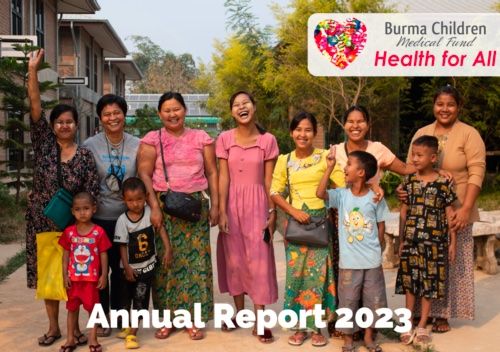
2023 Annual Report
2023 was a year of resilience and growth for BCMF. With the COVID-19 emergency easing and borders reopening, we restored our referral services to pre-pandemic levels, while simultaneously also expanding our outreach projects again. We also provided expanded cardiac care partnerships with free echo-screenings, and opened the BCMF Bangkok Patient House. Furthermore, amid escalating conflict in Burma, we developed our emergency support program further. Learn more about our impactful work in the 2023 Annual Report.
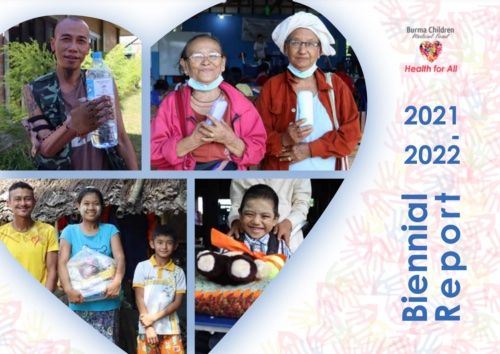
2021-2022 Biennial Report
Despite a difficult and challenging two years, BCMF continued to provide much needed services in Burma and Thailand. Our work in 2021-2022 continued to be impacted by the COVID-19 pandemic, but we were able to run a number of outreach projects while continuing to support access to health care for our patients. In 2021, in response to the coup in Burma, we launched our Emergency Support Project, providing much needed medical supplies and equipment, medications, and emergency food support to populations in Burma affected by the ensuing civil war. Learn more about our work and our projects in our Biennial Report 2021 - 2022.
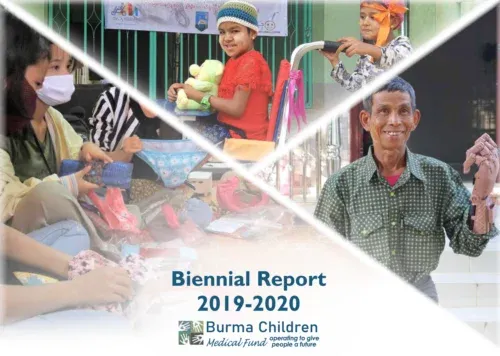
2019-2020 Biennial Report
The last two years have been filled with exciting achievements and challenges. 2019 saw the expansion of our outreach projects as well as the establishment of a new project, allowing us to support more individuals and communities. The following year in 2020 brought obstacles amidst a worldwide pandemic. Although many outreach projects were postponed, we continued to support patients through our surgical program in Thailand and Burma. Our new partnership with Malteser International Thailand helped us reach more patients in refugee camps in northern Thailand. Read more about our work in our Biennial Report 2019 - 2020.
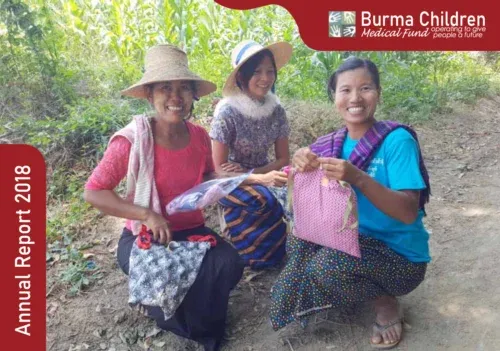
2018 Annual Report
2018 was another busy and successful year for BCMF. Although there was a decline in patient enrollment to our patient services program, there was an increase in individuals who benefited from our numerous outreach projects this year. Through the partner organisations from the previous years, BCMF established new partnerships with local organisations in Burma, Thailand, and even Laos! Another achievement under the outreach program was the newly launched Reproductive Health and Rights project. Added to the Wheelchair Project was the distribution of mobility carts, which were donated by a new partner from the US. BCMF's The One Project was also completed in April of this year. A detailed and complete review of our work in 2018 can be found here.
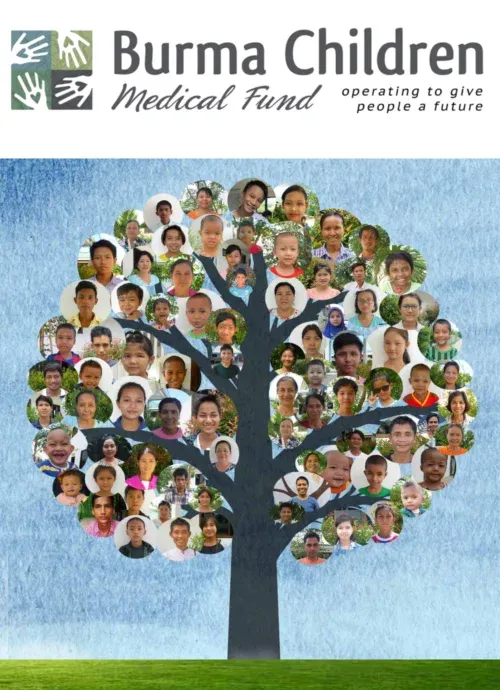
2017 Annual Report
BCMF had another successful year in 2017. BCMF continued to see an increase in patients from our referral services program. As BCMF forged new partnerships in Burma, BCMF was able to reach more people in need of care during outreach missions. BCMF also carried out eye screening and wheelchair training and fitting missions in new locations in Burma, in addition to continuing to support a clinic in Karen State with medical supplies and schools along the Thai-Burma border with stationary supplies. Click on this link to read full annual report.
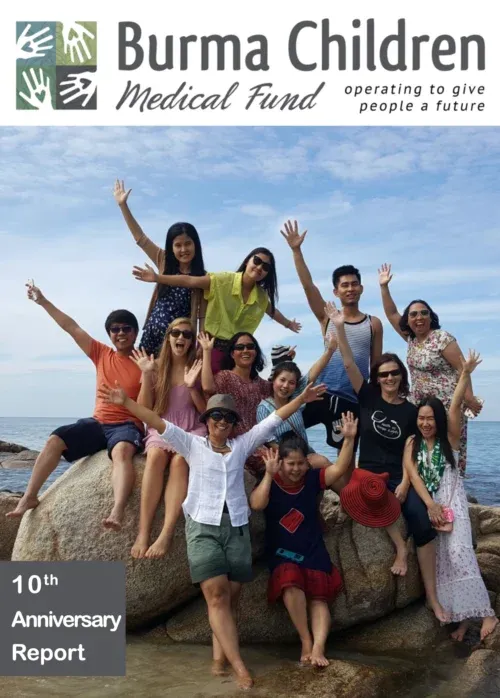
2016 Annual Report
BCMF's 2016 Annual Report presents our organisation's achievements and challenges during our 10th year in action. While staff and volunteers celebrated this major milestone, 2016 also saw the expansion of programs from previous years as well as the development of new projects. As a result of the increasing demand of services in Burma, we made the decision to register as an official organisation.
In 2016, 345 new patients were referred to BCMF; over 75% of these patients continued to arrive from rural areas in Burma. To meet the challenges faced by poor healthcare services and infrastructures in Burma and to help increase patient referrals in remote communities, BCMF implemented an internship program enrolling staff from partner clinics and organisations.

The Burma Children Medical Fund (BCMF) was established in 2006 in response to the increasing number of children on the Thai-Burma border who required complex medical treatment and surgery that is not available at local clinics or hospitals. Prior to BCMF being established, children who required surgery had their symptoms treated and lived either severely incapacitated lives or died prematurely as a result.